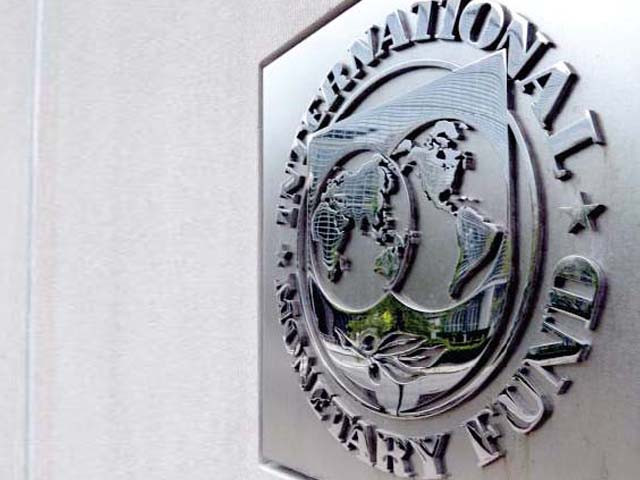Financial respite: IMF bails out cash-strapped Pakistan
Executive Board approves $6.7 billion loan; Islamabad to receive $540 million immediately.

Unlike the last stand-by arrangement between the IMF and Pakistan, the new EFF will provide the much needed fiscal breathing space to Pakistan as it will be required to repay the loan over a period of 10 years. PHOTO: FILE
Despite uncertainty about Pakistan’s ability to implement critical reforms, the International Monetary Fund (IMF) on Wednesday approved a $6.7 billion loan for Pakistan to forestall a balance of payment crisis.
The approval by the IMF’s Executive Board came after Pakistan accepted a set of tough structural reforms as prerequisites for qualifying for the three-year Extended Fund Facility (EFF).
This will be the 16th programme that Pakistan and the IMF have agreed to since 1958. With a chequered history, Islamabad has earned the reputation of a one-tranche nation - a veiled reference to the country’s track record of taking loans at critical times and abandoning them prematurely.
Unlike the last stand-by arrangement between the IMF and Pakistan, the new EFF will provide the much needed fiscal breathing space to Pakistan as it will be required to repay the loan over a period of 10 years.

Pakistan is expected to receive $540 million immediately to partially address debt obligations amounting to over $6 billion owed by the country to international lenders this year. According to IMF sources, the remaining amount will be paid out evenly over the duration of the program, subject to the completion of quarterly reviews.
According to a statement by the IMF, the programme “is expected to help the economy rebound, forestall a balance of payments crisis and rebuild reserves, reduce the fiscal deficit, and undertake comprehensive structural reforms to boost investment and growth.”
Finance Minister Ishaq Dar has said the programme agreed with the IMF is in the interest of the country and necessary to put the country on path of sustainable growth and opening lending avenues with other international lenders.
However, the implementation of tough fiscal and monetary policies by the new government under the programme may hurt growth prospects. According to the Memorandum of Economic and Financial Policies (MEFP) – a set of detailed policy actions that the government will take to secure the loans - Pakistan will recover losses from electricity consumers and reduce subsidies to the power sector.
In addition, a gas levy will be levied on consumers to raise additional revenue of around Rs104 billion, while the government will spend less during first nine months of the fiscal to save Rs130 billion, hurting grown prospects.

Pakistan has also assured the IMF that negotiations on new National Finance Commission (NFC) Award will begin this year, earlier than the schedule, and that the fiscal balance which has tilted in favour of provinces will be readjusted.
On the monetary policy front, the State Bank of Pakistan is likely to increase interest rates and conducted money market operations by purchasing dollars from the market to adjust the foreign exchange rate.
Similarly, under the MEFP, the government is also likely to announce a plan to restructure 65 state owned enterprises.
The restructuring of 30 firms will be announced before end of September and rest before end December, with the government assuring the IMF that “non-viable firms” will be closed down. In one instance, Pakistan International Airlines (PIA) is likely to be broken up into two separate entities, with one being wind down by end of June 2014 and the other receiving a fresh bailout package combined with the privatisation of 26% of government shares in PIA.
Successful implementation of these conditions is likely to make Islamabad eligible for second and third loan tranches from the IMF and support important structural reform in the economy.
Published in The Express Tribune, September 5th, 2013.


















COMMENTS
Comments are moderated and generally will be posted if they are on-topic and not abusive.
For more information, please see our Comments FAQ